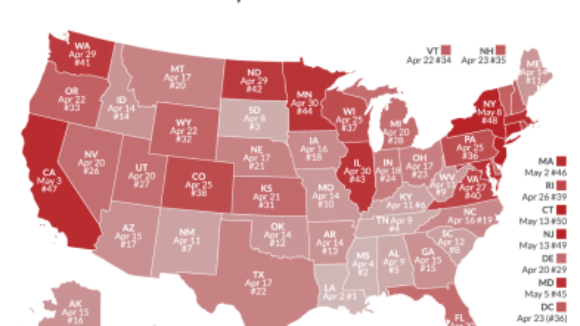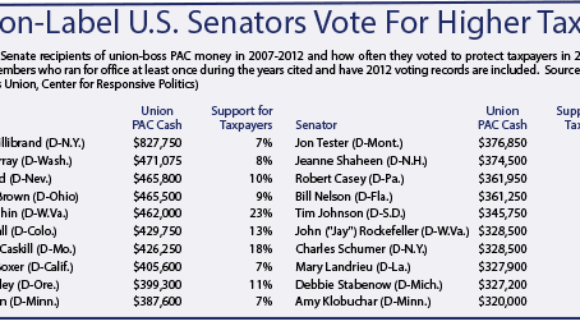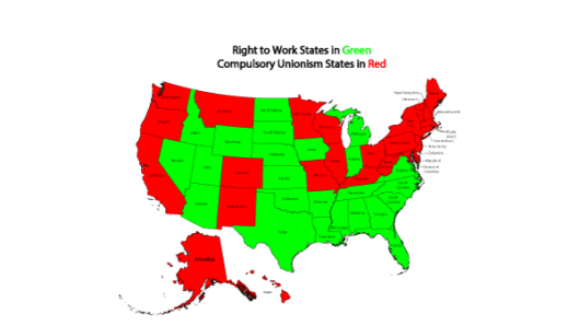New Jersey's 'Day of Reckoning Has Arrived'
Government Union Monopolists Have Brought State to Brink of Ruin
(Source: May 2010 NRTWC Newsletter)
From 1999 to 2009, according to the U.S. Labor Department, New Jersey's private-sector employment fell by 2.4%, a percentage decline seven times worse than the national average.
Over the same period, New Jersey's state and local public employment jumped by a whopping 15.2%, substantially more than the hefty-enough nationwide increase of 12.5%.
For most hard-working Garden State workers and employers, these statistics sum up why New Jersey is in even worse shape, economically, than the nation as a whole.
For years, the state's heavily unionized public sector has been sucking resources and vitality out of beleaguered private-sector employees and businesses.
But for government union officials, the relentless expansion of the Garden State's public-sector employment from 1999 to 2009, even as the state's private-sector employment alternately stagnated or shriveled, is a magnificent achievement that must be preserved and built upon, whatever the cost.
During his successful campaign for the state's highest executive office and since he was inaugurated in January, GOP Gov. Chris Christie has sided with the vast majority of New Jerseyans who appreciate that state and local government must now be rolled back to give the private sector room to grow.






